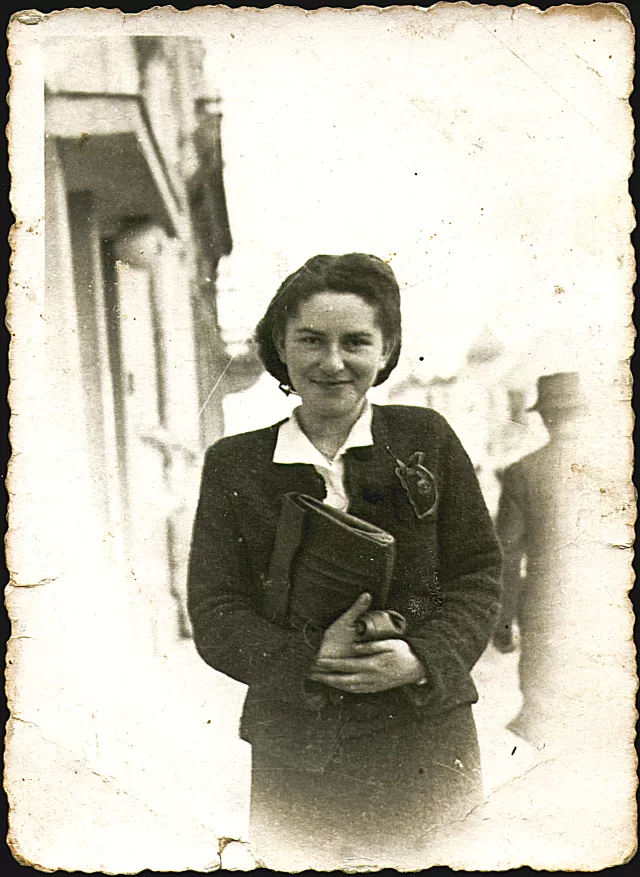This is me, Lilly Rosenberg, already in my engagement period. My groom was a relative, his name was Lajos. This photo was taken in Beregszasz in 1942.
Before the deportations, I started to work, in 1942. In Beregszasz, I learned to tailor and I taught tailoring, because Uncle Samu, the exceptionally big Zionist, said, 'No diplomas, learn a trade, because in Israel that's what is important.'
So I learned a trade and continued to do it. The Jewish laws affected everything, our whole lives. The educational ones meant I couldn't continue my tailoring classes. I had been learning to sew for a year, and tailoring with a famous seamstress.
I was still in Hetyen in 1942, and was still teaching tailoring, but I had to stop because racism really started then. Fascism had spread to a few places.
Hetyen hadn't yet been touched. It hadn't been decided yet, that Jews couldn't have industries, but it was clear that we had to sell the business: the spices and general store.
We weren't allowed to have a business. Moric, Erzsebet and I were home then. Gyula had married, Jozsef was studying in Prague.
My older sister had found a husband in Mateszalka District, in Szamossalyi and had three children.
You could travel, but Jews weren't allowed to continue their business activities; I had to give up teaching in 1942.









